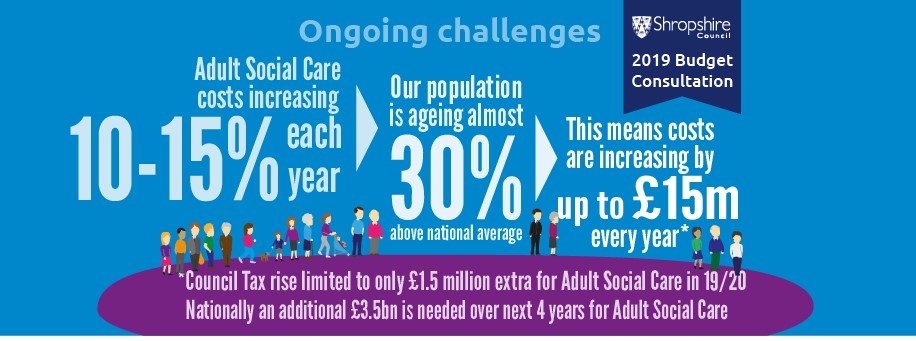Blog: capital and revenue
Capital and revenue are words that you will often hear when we talk about our budget.
Put simply, to the average household, revenue costs would be day-to-day costs such as your energy bills, petrol in your car or paying your TV licence. Capital would be big investments such as buying a house or building an extension.
As a council, our revenue expenditure includes things like staff salaries, building maintenance and the costs of running refuse vehicles. We use this budget to deliver around 150 services. Our capital expenditure includes things like a major road improvement scheme or the purchase of significant assets which have a productive value.
An example of our revenue spend
We act as ‘corporate parents’ to around 370 looked-after children across the county.
In November 2017, our children’s service was rated as ‘good’. It’s a fantastic achievement as we’re one of only 46 ‘good’ councils, meaning that our children’s services are now in the top 30% nationally.
Protecting vulnerable children in our care is something that we do every day and it’s something that we need to continue to do well.
This is where the challenge lies – the number of our looked-after children continues to grow. This growth equates to round £2m per year and we also have an increasing number of children who need more support (an increase of around 30% in last 12/18 months), which costs even more.
An example of our capital spend
We bought three Shrewsbury Shopping Centres last year to support the economic growth and future vitality of the town centre, as well as generate a sustainable year-on-year income stream.
We, alongside our team of agents and management advisers, have been working hard to retain and attract tenants, meaning that numbers of occupied units and footfall are holding up well. So well in fact that we were pleased to learn recently that Shrewsbury is bucking the national trend of a drop in town centre footfall.
Balancing the books
Our Financial Strategy sets out a number of savings we propose to make over the next five years in order to balance our (revenue) budget, but we are also investing in things using capital money that will future-proof our infrastructure as our county grows, and generate much-needed income which can be used for day-to-day costs.
As Government funding dwindles, choosing where to make savings is getting more and more difficult, especially as demand on the services we provide for our most vulnerable residents increases.
By law, we have to balance our books. We’ve come up with a number of proposals to enable us to do this and we’d like to hear what you think. Our 2019/20 budget consultation is open until Monday 18 February 2019 so please, if you haven’t already done so, fill in our short survey.
How we use our money
It may seem that a simple solution would be to stop spending money on capital schemes and spend the money instead on the running of our day-to-day services.
The trouble is that it’s not that simple! We’re not permitted to spend capital money in this way. Plus, the Government offers many incentives such as special grants and the ability to borrow money more cheaply to allow councils to invest in capital projects to support economic, housing and population growth, and offer a better return on investment than just keeping money in a bank.
It’s because of this that we ask that you keep an open mind when we spend money on things like major road improvements; refurbishing old, inefficient buildings like Shirehall; and buying Shrewsbury Shopping Centres.
We will continue to invest in those things that support our county’s economic growth and prosperity, as well as explore commercial interests so that we can plough returns back into the day-to-day.
But we will also continue to make savings, while constantly striving to do things differently so that we can provide the services that you value the most.


